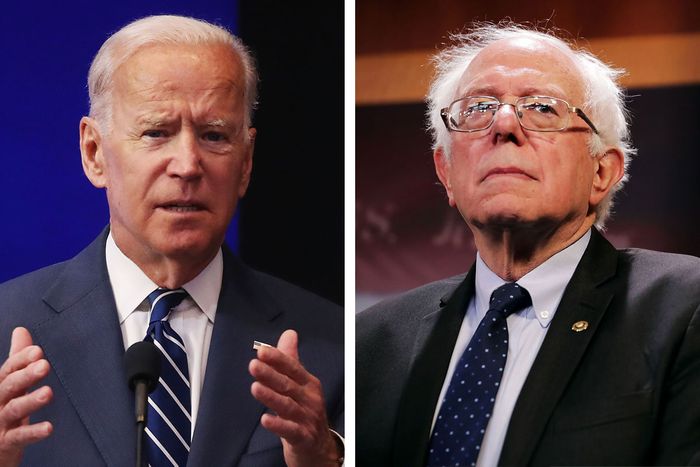
Joe Biden and Bernie Sanders obviously have a lot of things in common. They are both septuagenarian white men who served in Congress for a long time (Biden from 1973 until 2009 and Sanders since 1991). Both have run for the Democratic nomination for president before (Biden in 1988 and 2008, and Sanders in 2016).
Within the broad confines of the Democratic Party (and its Democratic-leaning independents, with whom Sanders personally identifies), though, the two elderly gents are thought to represent very different ideological strains. Biden has always been considered a “moderate,” from his days in the 1970s as an opponent of “school busing” to his long championship of tough law enforcement and drug policies to his partnership with Barack Obama. Sanders, of course, is a self-described “democratic socialist” and a longtime critic of the Clinton and Obama legacies as insufficiently progressive. They arguably represent the right and left poles of the large 2020 Democratic presidential field.
A new, large Morning Consult poll for 2020 places Biden first (with 29 percent) and Sanders second (at 22 percent) nationally. In four early states (Iowa, New Hampshire, Nevada, and South Carolina), it’s Biden leading with 33 percent and Sanders second at 21 percent. That’s no surprise; it’s in accordance with most of the early polling we’ve seen. What is interesting is what happens when Biden and Sanders supporters are asked about their second-choice candidates. Among Biden fans nationally, the top backup candidate is Sanders with 27 percent. Among Sanders supporters, a plurality (26 percent) consider Biden their next option.
What this most likely indicates is that support for each of these candidates is to a significant extent a product of the high name ID they share: 89 percent of Democrats saying that they plan to vote in primaries or caucuses know enough about Biden to have an opinion of him, with 88 percent saying the same of Sanders. Seventy percent say they are familiar with Elizabeth Warren, and 62 percent with Kamala Harris. Cory Booker, Beto O’Rourke, and Michael Bloomberg register in the 50s on familiarity; and it goes on down from there into real obscurity (Jay Inslee, Pete Buttigieg, and Steve Bullock are all known to less than 20 percent of respondents). As other candidates become better known, Biden and Sanders supporters may begin sorting themselves out more ideologically, and the share of voters they together command could decline as well.
For the time being, though, they continue to lord it over most rivals. Both nationally (13 percent) and in the early states (11 percent), Kamala Harris is running third, and Elizabeth Warren (8 percent nationally and 10 percent in the early states) is running fourth. Both have conducted well-regarded campaign launches. When everybody who’s going to run is running, we’ll know a lot more about the dynamics of the campaign.






























